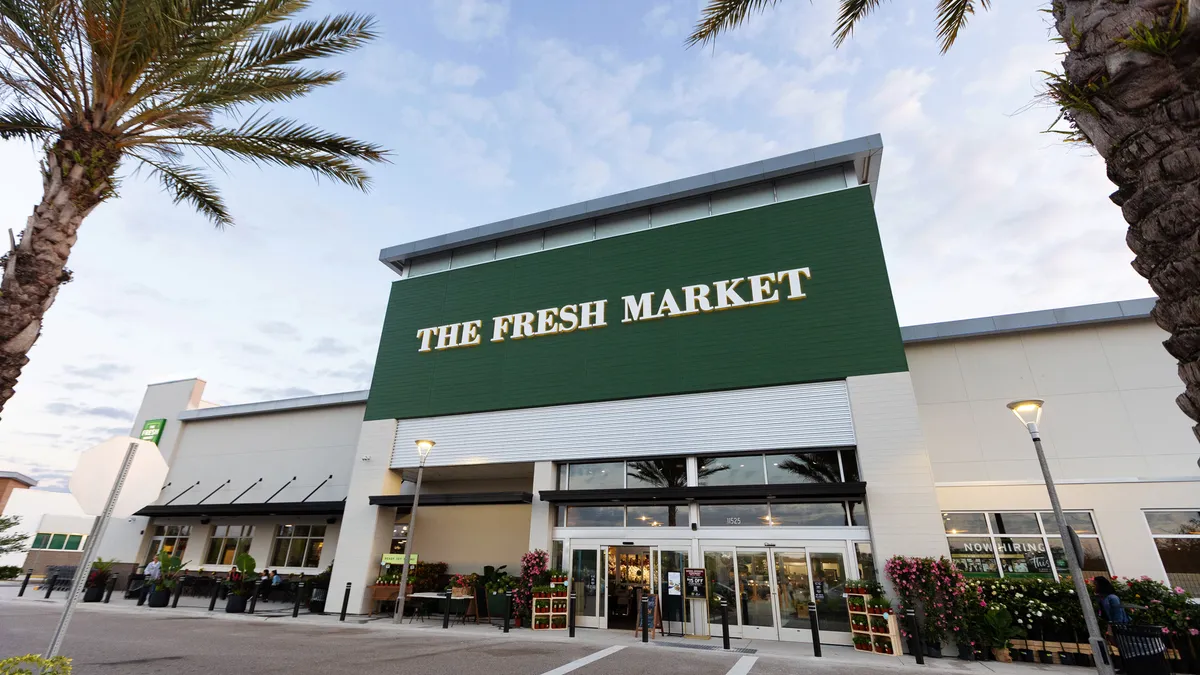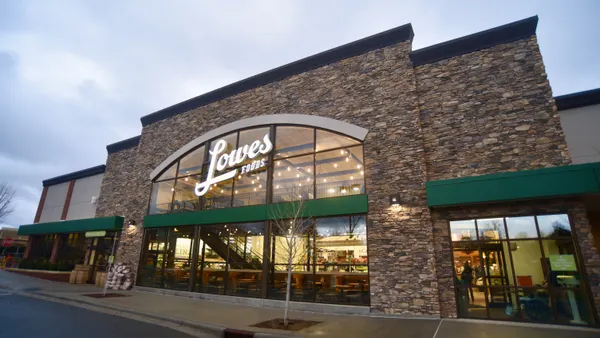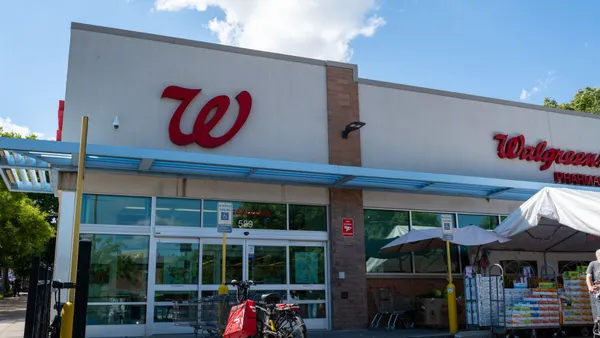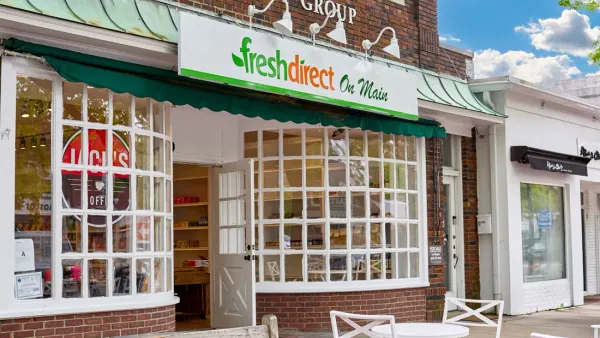WASHINGTON — After five months of negotiations, hundreds of union Safeway employees and members of United Food and Commercial Workers Locals 400 and 27 rallied outside of Safeway #2892 in Washington, D.C. on Wednesday as a tactic to try and negotiate a new contract with additional benefits. Attendees marched with signs with slogans like "We Demand a Fair Contract," while chants from "This is what democracy looks like" to "Safeway, Safeway, rich and rude. We don't like your attitude," pierced the late morning air.
Originally, the event was for Giant Food employees as well, but they reached a tentative agreement late Tuesday night. The details will not be made public until the membership committee meets on March 5 to decide whether to accept the offer, Mark Federici, president of UFCW Local 400, told Grocery Dive. March 5 will also be the date Safeway union employees will vote to authorize a strike if the two sides can't reach a deal.
"Safeway is committed to remaining at the bargaining table to work through our challenges and reach an agreement that rewards our employees," the retailer told Grocery Dive in a statement. "In the event of a strike, our stores will continue operating and serving our customers."
Rally attendee Indiara Smith and Federici remain hopeful that the company will make a deal without a strike, which could see thousands on the picket line. "Nobody wants to go on strike, but if we have to, then we have to be prepared to do so. After five and a half months bargaining, enough is enough," said Federici.
Albertsons' Safeway and Ahold Delhaize’s Giant Food proposed adjustments in September to contracts that include freezing new hires at minimum wage for three years, increasing out-of-pocket healthcare expenses and making changes to its pension benefits, according to a UFCW press release.
Federici confirmed that Giant Food and Safeway currently offer the best benefits and wages among grocers in the Baltimore-Washington region, which is a result of being unionized compared to other grocers like Target, Whole Foods, Trader Joe’s and Harris Teeter.
Over the last year grocery stores have faced numerous labor battles as issues like fair wage and benefits have risen to the public forefront.
In April 2019, 31,000 unionized Stop & Shop workers in New England went on strike to protest proposed cuts to healthcare and take-home pay. After 11 days, UFCW and UNFI's Stop & Shop reached an agreement. Just a few months later in Southern California, Vons, Ralphs and Albertsons also failed to meet UFCW's contract expectations. As a result, workers rallied in August and reached an agreement in September.
Federici and Smith both noted that the decision to aggressively move forward with a rally and strike threats against Giant Food and Safeway were propelled by the successful deals between union groups and grocers across the country last year.
The growing public support for employee labor issues was illustrated by the elected officials and community leaders that stood alongside protesters. Tom Hucker, Montgomery County, Maryland, council member and Aisha Braveboy, state's attorney for Prince George's County in Maryland, spoke out against the repercussions of Safeway’s proposed changes. They explained that offering minimum wage in one of the most expensive cities in the country and increasing premiums on health insurance will have a direct impact on the community and crime.
Deni Taveras, Prince George’s council member for District 2, demanded a fair redistribution of benefits, telling the crowd that 40 years ago, CEOs made 20 to 30 times more than store associates, but now they’re making 300 times more.
Smith added that she began noticing changes to Safeway's work environment long before the proposed contract changes. She explained that since Cerberus Capital Management, the private equity company that owns Albertsons, bought Safeway in 2015, stores have been understaffed, part-time employees are capped at 24 hours, associates are expected to work across all departments and healthcare is only offered to employees who work for at least 18 months. She believes all of these changes have resulted in a high turnover rate.
However, Smith said Safeway has been good to her during her 37-year tenure at the company, helping put her son through college as a single mother. Like many of its long-time employees, Smith is approaching retirement.
"I would love to get a pay increase, but if I can keep my pension and healthcare, I'm willing to give up on the 32-cent raise that they're proposing," she said. "This offer here to take away our pension is unacceptable. I worked hard to have a pension — not to have my pension applied to a 401(k). I don’t want that."
Federici said, "It's our inclination that they want to not be forthright with their obligations around their pension funds. It's the nature of the business. They're not in it for the long haul. They're in it for whatever short-term gain they can acquire and from my view, not a successful long-term strategy of success."













